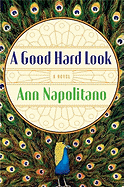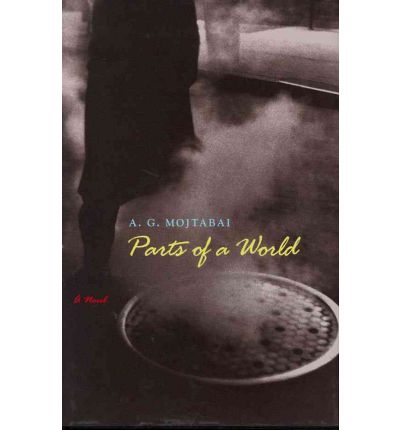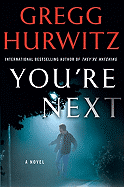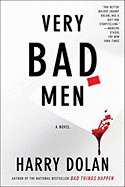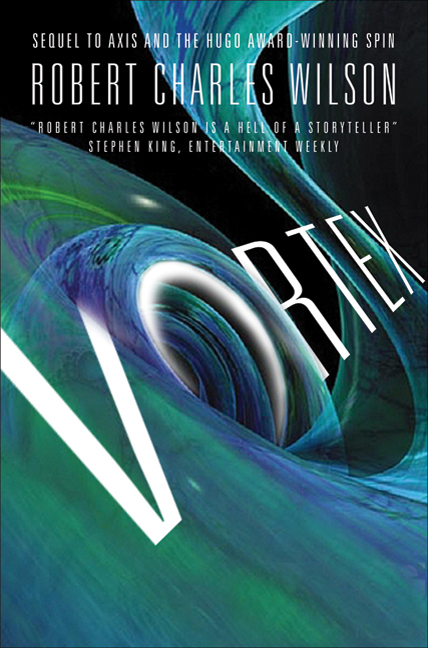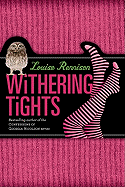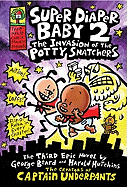Last week I appeared on the Hash Hags radio hour, hosted by three of my favorite authors: Julie Klam, Ann Leary and Laura Zigman (New York Times bestselling books, famous spouses, film adaptations and now an NPR affiliate program--these hags have it all!). We were talking about summer reading, which is all anyone wants to talk with me about at this time of year. Someone mentioned the perils of reading in the pool, and I said, "All you have to do is place your e-reader or Kindle or Nook in a Ziploc bag and you're set!" My kind hosts all murmured how smart I am, but really, I know better. It's not a matter of cleverness. It's desperation.
I am one of those readers who simply cannot be without a book, any more than an adolescent boy can be without his gaming device. My neediness leads me to believe that books of many sorts will survive. Allow me to explain, or at least expostulate for a bit. At different times in my life, different ways to read have prevailed. From well-worn library volumes whose battered spines would stay open while I ate cereal to compact mass-market paperbacks I could stuff in a backpack, on to brand-new hardcovers that my hands found easier to hold than other trim sizes, I've read things in the form and size that worked for easiest toting and easiest use.
 When it comes right down to it, while one way to read may have slight advantages over another in a given situation--and I'd certainly be more comfortable leaving a battered paperback on my beach chair than a shiny new e-reader--what matters isn't the way I read. I think I'm going to imitate a former president and put a sign on my desk. Mine will say, "It's the reading, stupid." --Bethanne Patrick
When it comes right down to it, while one way to read may have slight advantages over another in a given situation--and I'd certainly be more comfortable leaving a battered paperback on my beach chair than a shiny new e-reader--what matters isn't the way I read. I think I'm going to imitate a former president and put a sign on my desk. Mine will say, "It's the reading, stupid." --Bethanne Patrick
A Good Hard Look
by Ann Napolitano
Flannery O'Connor is an endlessly interesting person whose life in Milledgeville, Ga., was circumscribed by chronic illness, yet was also one of keen observation and insight, informed by her strong Catholic faith.
Ann Napolitano (Within Arm's Reach) has created a series of characters with Flannery as their unwitting centerpiece. She writes, watches over her peacocks, ducks and other birds, spars with her mother and struggles with lupus. She has an abrasive personality, an acid tongue and no time for pretense. Because of these traits, lived out loud, some of her neighbors, nothing-but-polite-pretense Southerners, are forced to look at the progress of their own lives--and often find them wanting. They are also of two minds about her: proud of her accomplishments and dreading finding themselves on the page.
Prom queen Cookie Himmel returns to Milledgeville from two years in New York with a wealthy fiancé, Melvin Whiteson. She marries him, settles in to create the perfect home and has the perfect baby girl. Melvin, meanwhile, is drawn to Flannery, whom Cookie hates for reasons never really clear; in this regard, the author's cryptic style is annoying. Melvin gives her driving lessons and lies to his wife about it. He's fascinated by Flannery's peacocks, but what he enjoys most is being himself around her, when he feels that every other interaction is inauthentic. There is nothing improper about the friendship, except that he can't own up to it to his wife. When he critiques Flannery's stories by saying that she writes no happy endings, she replies: "I'm sure you didn't consider this... but it's possible that the characters are closer to grace at the end of the stories. Grace changes a person, you know. And change is painful." Much of the import of the novel is contained in that sentence.
Lona, a seamstress hired by Cookie, is married to a cop in an utterly soulless match. She falls in love with a young boy, and the change wrought in her brings several worlds crashing down. On the same afternoon, a tragic and hideous accident takes place at Flannery's that changes the lives of several people.
Flannery O'Connor was forced by illness to leave New York and return to Andalusia, the family farm, to live out her days. Dead at 39, she never realized the life she had anticipated. Instead of being bitter, she was occasionally saddened, but was buoyed by her faith and her writing. Her experience gave her an edge, an incisive quality that did not suffer fools gladly. There are plenty of fools to go around in Napolitano's book--but there is also realization, reconciliation and hope. --Valerie Ryan
Discover: Flannery O'Connor, peacocks, Southern discomfort and tragedy on a grand scale converge in this gothic tale of change laced with grace.
A Bouquet of Barbed Wire
by Andrea Newman
When this novel was first published in 1969, followed by a steamy TV adaptation, it was quite controversial. Now, the book is back and another TV version was recently screened in the U.K. The tale of a father's obsessive love for his daughter, A Bouquet of Barbed Wire is gripping.
Peter Manson is beside himself with anger and anguish when his beloved daughter, Prue, 19 and pregnant, insists on marrying layabout loser Gavin. In a daze of confusion and pain, Peter starts an affair with his new secretary, Sarah. She understands her position with Peter: "You're in love with Prue. Not me, or your wife, just Prue... you're obsessed with her." That sums up the pivotal conundrum of the novel. There is no actual incest, but it is patently obvious what is at the center of Peter's unregenerate rage.
Prue is selfish, spoiled and has a penchant for inviting a violent reaction to her taunting behavior. The night of a confrontation with her parents, she gets that reaction in spades. From there to the end, the melodrama is about knee deep, with several excursions into amateur psychology. There is much pain--psychic and physical--inflicted all around, and Gavin, the free spirit, has yet another arrow in his quiver and Cassie has her own secret to reveal. In spite of yourself, you will not be able to stop reading. --Valerie Ryan, Cannon Beach Book Company, Ore.
Discover: A father's obsessive love for his daughter and an affair with his secretary that tears his family apart.
Lola, California
by Edie Meidav
Edie Meidav's third novel, Lola, California, moves between the present of 2008 and the past of the 1980s and tells the story of two friends, Lana and Rose. Navigating the decade of their teens with confidence, the girls are inseparable. They seem to satisfy an unnamed need in each other, and are known as Lola One and Lola Two, or just "the Lolas." Orphaned Rose craves the dynamic of Lana's family, a triad of intellectual parents and an only daughter. In Rose, Lana finds the fuel to stoke her creative, though occasionally destructive, flame. While their friendship blossoms, they are also under a shadow: Lana's father, Vic, has a cultish fame as the prophet of California's burgeoning neuroethology movement.
As adolescents, the Lolas go through high school crushes, teenage hijinks and road trips with Vic. As they grow older, they experience more harrowing circumstances, including rape in a foreign country, employment as strippers and a stint in an asylum. With time, they grow apart, then, as adults, come together to deal with their life choices, including Vic's imprisonment for an inexplicable crime, Lana's false entry into motherhood and Rose's penchant for relationships based in the past.
At the outset, Meidav's writing style might seem difficult. However, readers who persist to the end of Lola, California will see any frustrations satisfied, and they will not be surprised to learn that Meidav is also a poet. --Roni K. Devlin, owner, Literary Life Bookstore & More
Discover: An intimate and lyrical look at the choices that bind friends and family together, yet also push them apart.
Parts of a World
by A.G. Mojtabai
Most people in so-called civilized society believe a thick boundary exists between "normal us" and "them"--the homeless and mentally ill. Somewhere in the middle of this 10th book by the author of All That Road Going and A Stopping Place, the us/them boundary starts to seem pretty porous. Though art has long challenged the notion of "crazy" in the human condition, Mojtabai's elegiac story is a fresh, if sad, rumination on the questionable comforts of sanity.
New York City social worker Tom Limbeck has hit a midcareer, midlife crisis: his love relationship has disintegrated, he's sliding into depression and he has developed an unhealthy obsession with the well-being of one client over all others. That client, Michael, clings to delusions that cause him to live a street life of constant peril. Unable to effect positive change in his own life, Tom goes to great--and unethical--lengths to disabuse Michael of his false beliefs. But Tom's widening despair and Michael's seemingly charmed survival suggest that perhaps lucidity isn't the only path to a life.
Mojtabai's prose is stately and spare, evocative of the gray details of Tom's New York existence and the ugly realities of street life, yet devoid of distracting digressions. Before she is done, Mojtabai explores faith and the faultiness of childhood memories and suggests an uncomfortable distance in human connections. This is serious work by a seasoned writer; emotionally challenging, certainly, with its haunting themes, but intellectually stimulating and undeniably powerful. --Cherie Ann Parker, freelance journalist and book critic
Discover: A gently devastating portrait of ruined lives and madness as a survival skill.
The Bolero of Andi Rowe: Stories
by Toni Margarita Plummer
This slim volume of 10 interconnected stories contains many lifetimes of love, longing and loss. Mostly set in Los Angeles's San Gabriel Valley with forays back to Mexico, the stories--evocative, poignant, sexy, funny and dense with ritual and celebration--center on the Rowe family. Andi, the title character, has a Mexican mother and Irish-American father; her "bolero" is a song such as the old troubadors wrote and sang, reflecting in its lyrics the loves and lives of their people. Some stories making up Andi's life song bridge the border between an old world and a new; others are set wholly in the New World, with all its attendant difficulties and none of the comforts of tradition.
Andi is an architecture student in New York, trying to stay connected to friends in L.A. Her sweetheart, Pete, is torn between career desires: becoming a doctor or a musician. Their separation is the occasion of Pete's own "bolero" for Andi. Her best friend, Inez Suarez, is looking for love in all the wrong places, asking, "A man? Do they come in faithful?" In "What Would Mary Do," Dulce considers a religious vocation because, at 35, she seems to be out of options; however, if she just opened her eyes and took in what is right around her....
If you listen closely, you can hear in these stories the haunting strains of the best Latin music; those long, mournful chords that tell the whole story of what happens to people as they try to make connections and succeed or fail--and try again. --Valerie Ryan, Cannon Beach Book Company, Ore.
Discover: A debut collection of 10 interconnected stories about Latinas in Los Angeles--their lives, loves and losses.
Mystery & Thriller
The Hypnotist
by Lars Kepler, transl. by Marlaine Delargy
A Swedish thriller that's "phenomenal" and an "international sensation." You've heard this before, but it's not PR hyperbole. The Hypnotist truly is extraordinary--a heart-pounding, enthralling story of madness and malevolence.
A 15-year-old boy lies unconscious in a hospital, suffering from hundreds of knife wounds, the only survivor of a vicious attack in his home that killed his mother and younger sister. The boy's father was found dead at a playground, and Evelyn, the older sister, is missing. Homicide detective Joona Linna thinks the killer is after her, and believes the boy would be able to identify the killer. He calls Erik Maria Bark, a physician who specializes in treating acute trauma. Bark examines the boy, Josef, and says it's not possible to question him. When Linna casually suggests trying hypnosis, Bark forcefully declines--hypnosis was a practice he had vowed a decade earlier to stop after being accused of planting false memories in the mind of a woman in a therapy group of trauma survivors. But Linna is determined to find the sister, and Bark finally capitulates. But with the response he elicits from Josef, the puzzle deepens--is it possible that the boy killed his family and mutilated himself?
Two men--Bark and Linna--with pasts they cannot escape, single-minded in their attempt to stop an unspeakable horror, are hurled through a riveting story of obsession and revenge. The Hypnotist is played out against the backdrop of a Swedish winter, where snow falls from a black sky, the trees are bare, and the chilling ice and slush are no match for the searing burn of evil. --Marilyn Dahl, book review editor, Shelf Awareness
Discover: A heart-pounding, enthralling story of madness and malevolence, played out against the backdrop of a Swedish winter.
You're Next
by Gregg Hurwitz
Gregg Hurwitz, author of The Crime Writer and They're Watching, takes his fast-paced, action-packed writing to a new level in You're Next. Alternating between past and present, Hurwitz reveals the history of Michael, whose father abandoned him on a playground at the age of four. By adulthood, Michael has fought for everything he has achieved, so when that life is threatened, he won't go down without a fight.
Wingate, a contented husband and father who has a solid future with a construction company, doesn't know that he's about to be haunted by events from a past he can't even remember. When danger stalks his wife and daughter, he turns to his one true friend, Shep. Unfortunately, Shep--the two met as boys in foster care--is as dangerous and unpredictable as the supposed villains.
In the end, relationships like Mike and Shep's charge this electrifying thriller. The themes and plot are built on the relationships, and the characters are defined by their relationships. It's Hurwitz's ability to illustrate the potency of these human connections that will make readers laugh, cry and stay up far past their bedtimes.
You're Next is Gregg Hurwitz's finest work to date. His passion shines through in tight plotting, witty dialogue and emotional imagery. Hurwitz goes beyond current issues and examines the very heart of human issues. Step right up and experience the phenomenon that is Gregg Hurwitz. You're next. --Jen Forbus of Jen's Book Thoughts
Discover: A tightly plotted thriller that will blow your hair back, knock your socks off and, if you're not careful, steal your heart.
Very Bad Men
by Harry Dolan
Anthony Lark has three names written down in his notebook, and he's hunting them down one by one as part of his mission to avenge a 17-year-old crime. David Loogan (introduced in Bad Things Happen) is content with his life in Ann Arbor, with girlfriend Elizabeth Waishkey (who's a police detective) and her daughter Sarah, and with his job as editor of a mystery magazine. Lucy Navarro is a tabloid reporter trying to dig up a story linking the old crime with a current political campaign. But David is drawn into the murky waters of Lark's crusade, and Elizabeth is assigned to the investigation, so David feels compelled to help Lucy in her inquiries--especially after she disappears suddenly.
This fast-paced and intelligent thriller is told in David's voice, but offers insight into Lark's troubled psyche as well, as he battles the demons that make the words in his notebook breathe and tremble. Readers of the mystery genre will have a little extra fun with David's work editing mystery stories; we even learn which authors Lark follows. Teenaged Sarah is a spunky addition to the diverse mix of characters trying to solve the crime: amateur David, tagging along with Elizabeth, the experienced professional; and indomitable Lucy, whose past holds a secret or two. Then there are the political players: an aging senator about to retire and his up-and-coming daughter-in-law, who may be tied to an old bank robbery. Complex and well-developed characters, a mind-bending plot and a wry tone make this novel impossible to put down. --Julia Jenkins, librarian and blogger at pagesofjulia
Discover: A clever, complex thriller in which a killer hunts the perpetrators of a decades-old crime.
Science Fiction & Fantasy
Vortex
by Robert Charles Wilson
Robert Charles Wilson's trilogy-ending followup to his Hugo Award-winning Spin is part ecological referendum and part political intrigue, meandering across disparate paths to ultimately reveal something profound about the human condition.
Vortex moves between an Earth post-Spin and an imagined future where Vox, a networked collective of minds, seeks the fabled "promised land" known as Earth to escape religious persecution. Earth is a dying planet whose fate lies in the decisions of its inhabitants and alien Hypothetical technology that stabilizes Earth's barometric rise.
In this 21st century of "Big Brother" politics, a troubled teen becomes the focal point of law enforcement and Martian drug dealers seeking to alter a wonder drug for personal gain. The teen's sole possession is a manuscript about Turk Findley (introduced in Axis), who happens to be the angst-ridden son of one of the dealers. Findley is transported 10,000 years into the future, drops onto the desert of a distant planet and is picked up by the Vox, who use Hypothetical time-traveling "arches" to traverse planets and seek redemption through fanatical worship of the seemingly benign Hypotheticals. Capitalistic self-righteousness and the futuristic march toward democratic, ecological and genocidal suicide provide the backgrounds for heated discourse about pitting sacrifice for the collective good against personal greed.
Wilson's bifurcated narrative does coalesce, and ultimately succeeds in doing what great science fiction does best: serves as a mirror of who we are, what we have become and what we can be. --Nancy Powell, freelance writer and technical consultant
Discover: A psychological, technological and apocalyptic time-altering thriller by Robert Charles Wilson, author of the Hugo-winning Spin.
Nonfiction
Always On: How the iPhone Unlocked the Anything-Anytime-Anywhere Future--and Locked Us In
by Brian X. Chen
Brian Chen's Always On was sparked by a cab driver (a future assistant professor in social science) who told him, "The Amish are the smartest people on the planet" because technology was "dumbing us down." This brief conversation prompted Chen, who has worked for Macworld and Wired, to explore what we have lost--and gained--as a result of having the world in the palm in our hand: "The iPhone unlocked a reality in which we can potentially have anything we want, anytime and anywhere. And as a result, everything has changed...."
Chen provides a short history of the iPhone, including vignettes about how apps have saved lives, assisted law enforcement and shaped politics. He then explores the difference between vertical (closed) business structures--Apple vs. open-source--and ends with a discussion of privacy issues.
Always On is accessible to both techies and Luddites. Chen's focus is firmly on Apple throughout--but this should be expected, given the title, and he does explore critics' accusations about Apple "imposing censorship, holding developers hostage, stifling innovation, and fostering conformity." However, Chen clearly believes the benefits outweigh the costs of this new technology.
Chen ultimately reframes the question "Is the Internet making us dumber" to "perhaps the definition of intelligence is changing." While Chen's bias is evident, this does not interfere with his ability to examine many facets of this fascinating subject. --Kristen Galles, blogger at Book Club Classics
Discover: A compelling analysis of how the iPhone has revolutionized every aspect of our lives.
Children's & Young Adult
Withering Tights
by Louise Rennison
In the hands of Louise Rennison (the Georgia Nicolson series), a summer camp for high school drama queens on the bluffs of Yorkshire becomes the stuff of high comedy. The title suggests a send-up of the Brontë Sisters, and readers will not be disappointed. Tallulah Casey, Georgia's cousin, shares some of the family knack for wit. Early on in the novel, Tallulah, who narrates and is in the midst of reading Jane Eyre, notices that the drama school's Dother Hall is on fire, and a figure resembling Mrs. Rochester is on the roof. She tells a fellow camper, "It all adds up, doesn't it? We're in Yorkshire on some moors at a big house, the roof's on fire, and someone, who may or may not have been banged up in the attic for years, has just come out onto the roof. I'm only stating the obvious."
Although Dother Hall accepts only girls, Woolfe Academy for Young Men is but a stone's throw away. Tallulah quickly endears herself to the other campers by summing up their collective experiences with boys: "Is that it then? A maybe fondling of a bum, a hit-and-run undone thing, and an ice cube incident?" Tallulah rents what she calls a "squirrel room" from the kind-hearted, slightly out of touch Dobbins family, who provide further fodder for Rennison's comedy. And fascinating bad boy Cain, who sings in a rock band, seems to turn up under Tallulah's window "snogging" with a different girl each night. Will Tallulah be one of them? It all adds up, doesn't it? --Jennifer M. Brown, children's editor, Shelf Awareness
Discover: A hilarious romp set in a summer drama camp by consummate comedienne Louise Rennison.
Lost Voices
by Sarah Porter
First-time author Sarah Porter reimagines the mermaid myth in a thought-provoking tale of transformation. Fourteen-year-old Lucette lost her mother to a ruptured appendix, and her father to the sea, and she's left with her uncle in an Alaskan fishing village. One night, Luce is pursued by her drunken uncle, and he nearly rapes her. She flees him and steps off of a cliff. But instead of falling to her death, she transforms into a "metaskaza" and is immediately adopted by a tribe of beautiful young mermaids.
The mermaids not only transform physically but, like the sirens of legend, they also gain the gift of song, and Luce's song is spectacular. She immediately becomes indispensable to Catarina, queen of the tribe, and learns to follow the "timahk," or code of honor among mermaids. But Luce is torn: she loves singing and the power it gives her, yet she detests its purpose--after all, her beloved father died at sea. Porter's prose extolling the majesty of the ocean and the enchantment of the mermaids' music, plus the suspenseful series of shipwrecks, will keep readers turning the pages. At times, the secondary characters' actions can be inconsistent, such as Dana who at first aligns herself with Luce and seems to have a strong moral compass, but later abandons her. But the supporting characters' motives may be addressed in the planned later installments. Porter excels in her depiction of Luce struggling to master the voice she's been given as she tries to bend it into a tool of forgiveness rather than destruction. --Jennifer M. Brown, children's editor, Shelf Awareness
Discover: An unusual and spellbinding take on the mermaid legend in which the sirens retain their human complexity.
The Invasion of the Potty Snatchers
by George Beard and Harold Hutchins
Dav Pilkey's Captain Underpants helped pave the way for the graphic novel explosion in children's books--at least for that fragile age group that we often lose as readers. Fourth-graders George and Harold led a parade of reluctant boy readers into bookstores and libraries in search of the pair's latest capers. It's been nine years since the creative duo first invented Super Diaper Baby in lieu of a 100-page essay as penance to their principal for misbehaving. But they're back, in spades. After Mr. Krupp deemed their story garbage ("This is garbage!!!" he says), he challenges them to "write about anything else besides poop," and hands them a copy of "How the Grinch Stoled [sic] Christmas."
What do George and Harold write about this time? You guessed it: pee. As with the first of the Super Diaper Baby adventures, this is not just a scatological story--not at all. Well, there is a Dr. Dilbert Dinkle whose evil cat, Petey, inadvertently liquidates his owner into water--but water with a consciousness. Children learn about water's different stages (as Dr. Dinkle turns into ice and steam), plus what happens to water when it passes through a cat's system. Despite his new state, Dr. Dinkle hatches a diabolical plan (the title offers a clue), described in the rhythm and rhyme of Dr. Seuss's Grinch. An emotional subplot zeroes in on Super Diaper Baby's father, who feels useless next to his powerful infant and dog. Those who love the Flip-o-Rama feature will find a bounty of them here. Fans will welcome back George and Harold in a rip-roaring story, and novices will quickly become converts. --Jennifer M. Brown, children's editor, Shelf Awareness
Discover: The first new Super Diaper Baby adventure in nine years, featuring George and Harold at their best.
| Advertisement nuremberg--only in theaters november 7 |



